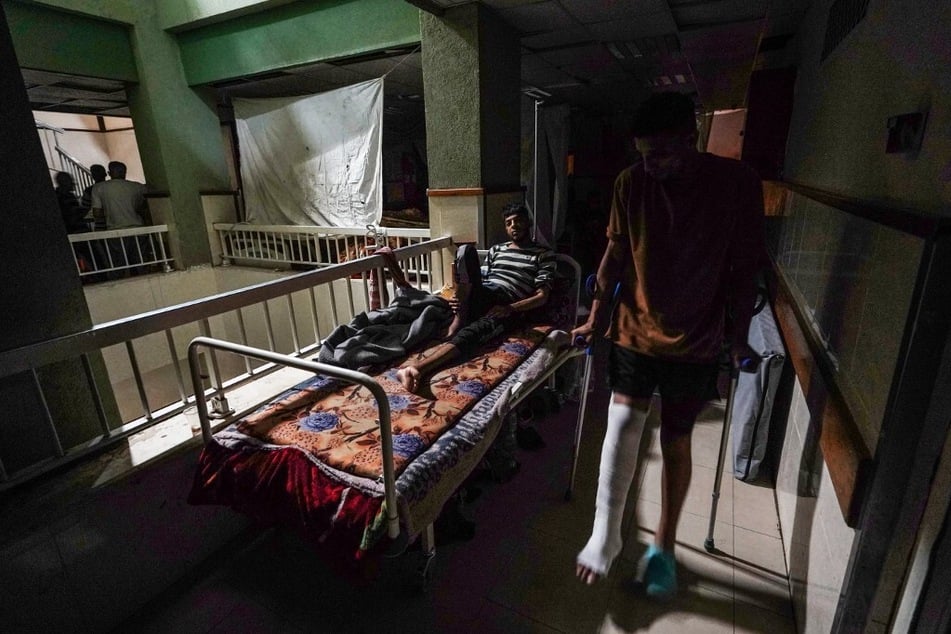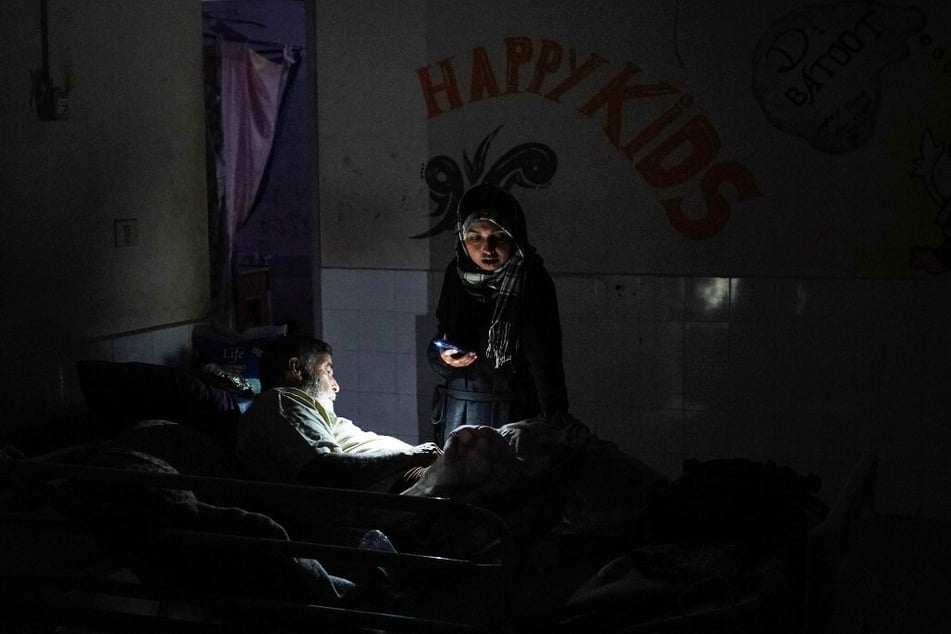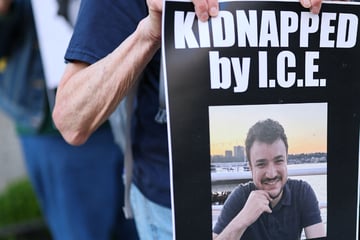Gaza doctors left in the dark as Israeli-induced fuel shortages hit hospitals
Gaza - In the dim corridors of Kamal Adwan Hospital in the northern Gaza Strip, mobile phone torches are now as essential as stethoscopes for doctors doing rounds without functioning generators.

Fuel shortages are widespread in the besieged territory after more than 10 months of Israeli assault, further restricting services at those hospitals that are still open.
Ayman Zaqout had a hard time even reaching the Kamal Adwan, located in Beit Lahia, because of Israeli strikes and displacement orders. Once admitted, he discovered he would be treated mostly in the dark.
"There was no electricity and I don't know how they will be able to treat me in these circumstances," he told AFPTV this week, grimacing from pain as he battled renal colic.
He was lucky to be treated at all.
Not long after he arrived, the hospital "stopped taking in patients" altogether, doctor Mahmoud Abu Amsha said, noting that "international organizations no longer supply it with the fuel needed for the generators."
The fuel shortages could soon prove deadly, Abu Amsha said.
"Children in the incubators are threatened with cardiac arrest and death, and there are also seven cases in the intensive care unit, and they will die due to the fuel shortage," he said.
Gaza hospitals reach breaking point as Israeli siege continues unabated

Israel has killed 40,265 Palestinians in Gaza since October, according to the territory's health ministry. The UN rights office says most of the dead are women and children.
Gaza's 2.4 million people, nearly all of whom have been displaced at least once, have only 16 hospitals still functioning, all of them partially.
In the first days of the siege, Gaza's only power plant stopped working, and Israel cut off the electricity supply. Fuel has since trickled in along with other humanitarian aid through Israeli-controlled checkpoints.
To respond to a major emergency – a particularly deadly air strike nearby or a sudden influx of wounded – medics at Kamal Adwan can still turn to solar energy.
"But it cannot be used for patients who need electrical equipment 24 hours a day," Abu Amsha said.
The lack of fuel also makes it difficult to operate ambulances.
Al-Awda Hospital, also in northern Gaza, is desperately waiting for a fuel delivery to restart its generators, the hospital's acting director, Mohammed Salha, told AFP.
"Two days ago, we closed some services and postponed operations. This puts the sick and wounded at risk," Salha said.
Since then, the hospital has been providing "the minimum service" only thanks to other hospitals that "donated part of their fuel stock," he said.
Cover photo: Bashar TALEB / AFP

